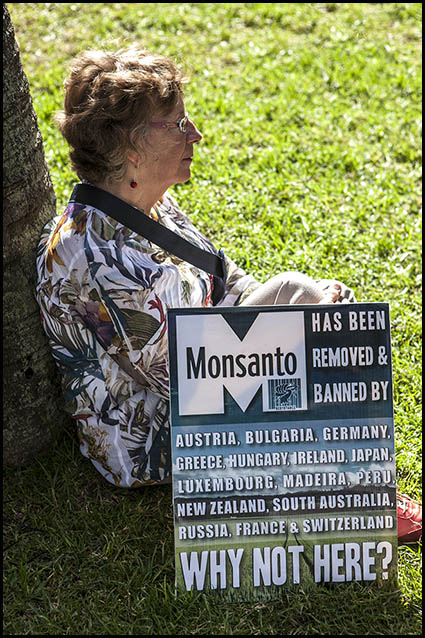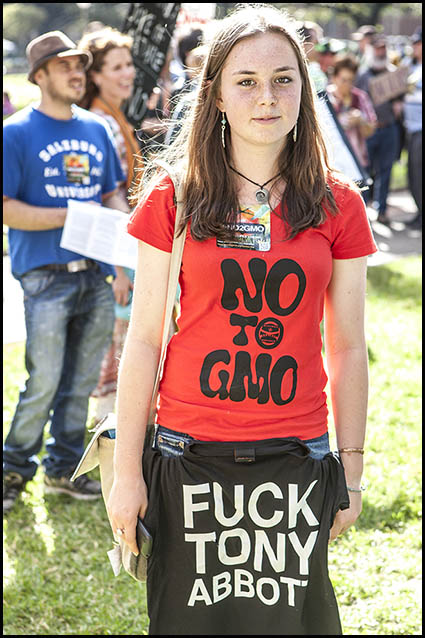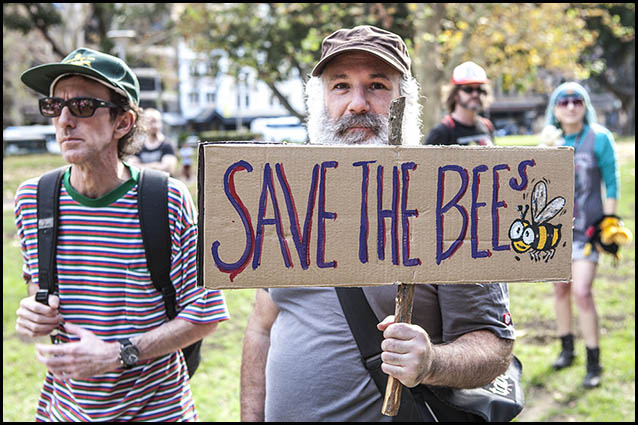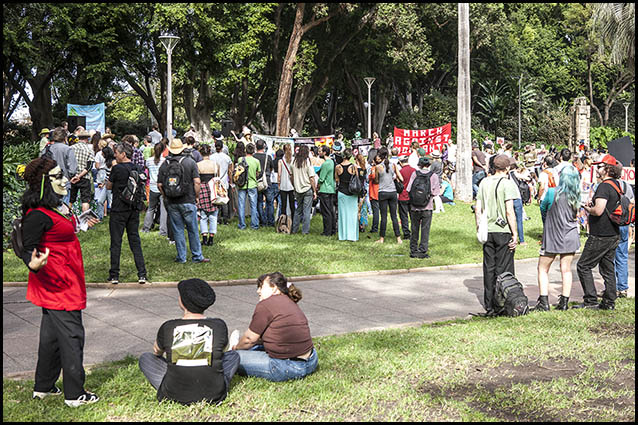343 Monsanto, the evil empire ... hmmm
MARCH AGAINST MONSANTO
Went to a demo yesterday, March
Against Monsanto; seemed all very worthy, but I was struck by some
contradictions ... myself, I'm an organic type of person, I like organic foods. But I find the argument compelling that if everyone was to eat organic food only - without GMOs, without pesticides and fertilisers - the world population could not be fed. There simply wouldn't be enough food to go 'round.
The question now is: What's better, to use pesticides and fertilisers or to genetically modify crops to repel pests and to have larger yields? Still, it's interesting to see that GMOs have been around for only 15 to 20 years ... how will they affect the future? And should Monsanto be allowed to patent seeds ... i.e. to which degree should they be allowed to protect their investments? But how well known is it that in developing countries Monsanto does not charge farmers for their seeds, until they grow more than $10,000 p/a worth? Hmmm
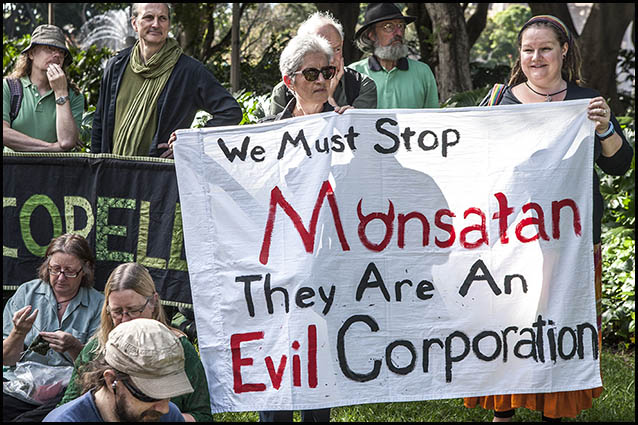
Emotions are running high, one placard said:
"Mankind Must Stop Monsanto ... Or Monsanto Will Stop Mankind."
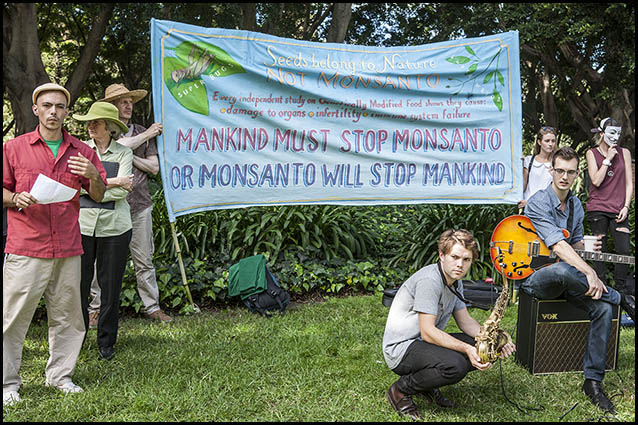
That is strong language; another made a curious (as I found out) point "Monsanto's Worst Enemy Is An Informed Public!" When I got home and started research for this blog, I was wondering how informed members of the crowd were.
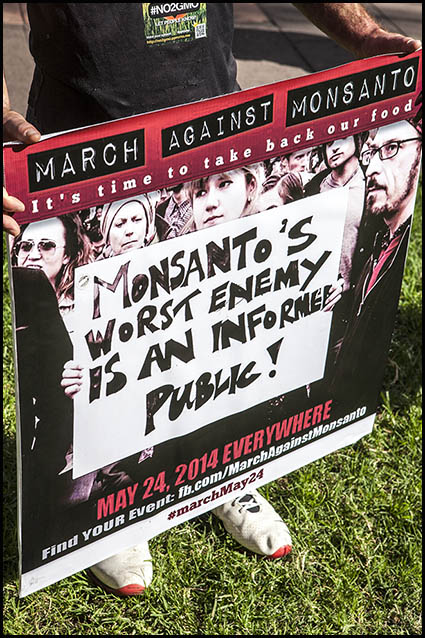
One asks to "Terminate Monsanto's Rights" ... probably an understandable view if it is based on this information:
Any researcher wanting to conduct research into a GM crop must get authorisation from the patent holder ... where permission is granted, if the research is ‘unpalatable’ to the GM company, the research is unlikely to ever see the light of day. I.e. only research that has been ‘approved’ ever gets published in peer reviewed journals.
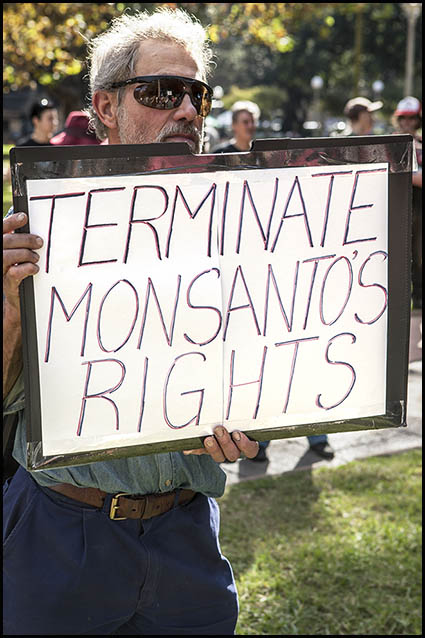
Well, that shocking info comes from a Scientific American article in 2009. One needs to dig around on the internet, but updates are available (Steven Novella:) ... "finally I landed on an article from 2013 by Nathanael Johnson from Grist, that includes statements from scientists and industry. He reports that the voluntary agreements are actually working well:
Any scientist working at those institutions with agreements is now free to experiment. The catch is that the companies require the universities to sign a further agreement, showing that they understand they can’t let researchers pirate the seeds or plant them after the experiment is over.
"Ironically, Monsanto has the most liberal policy:
Monsanto has a blanket agreement allowing research at all universities in the United States. And actually, when Shields et al. made their complaint, Monsanto claimed it already had many of these agreements in place allowing independent research.
"The scientists who made the complaint simply did not know Monsanto had already made moves in this direction.
It seems the story has a mostly happy ending. The seed companies were, as companies will, looking after their own corporate interests and were justifying their restrictive actions. Scientists complained, this complaint was amplified by editorials and mainstream articles, and partly as a result the companies worked out reasonable agreements allowing for more independent research.
"Monsanto, which appears to be more aware of its public image since it has been so thoroughly demonized by the anti-GMO crowd, in fact was a little ahead of the curve in this regard."
The above poster is interesting too, I was wondering how our food is poisoned and I went to
Wikipedia:
While there is concern among the public that eating genetically modified food may be harmful, there is broad scientific consensus that food on the market derived from these crops poses no greater risk to human health than conventional food.
Finally, the comment that "Monsanto is Making A Joke Of Nature" I would like to contrast with some facts about GMOs ... there is even A Hippie's Defense of GMOs. And this paragraph is from the article in the Scientific American:
Advances in agricultural technology—including, but not limited to, the genetic modification of food crops—have made fields more productive than ever. Farmers grow more crops and feed more people using less land. They are able to use fewer pesticides and to reduce the amount of tilling that leads to erosion. And within the next two years, agritech companies plan to introduce advanced crops that are designed to survive heat waves and droughts, resilient characteristics that will become increasingly important in a world marked by a changing climate.
It seems to me there are more sides to the argument whether GMOs are good or bad for humanity. Monsanto certainly are being bashed about by public opinion, but the key to the issue is "information". To take an informed stance unfortunately requires a fair bit of searching and reading. I'm just not so sure that very emotional responses to a very complex issue are the way to go.
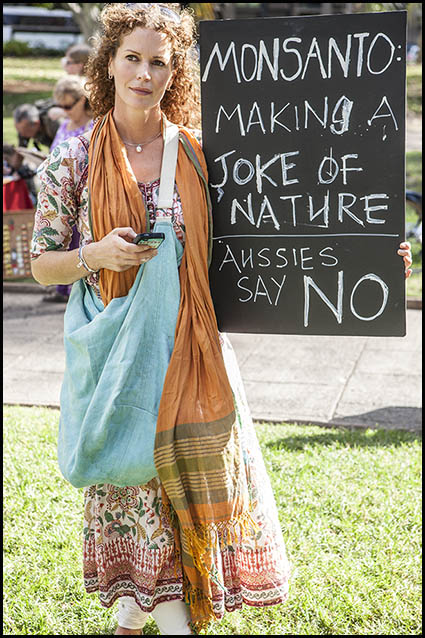
The truth is genetic engineering has gone on for about 5000 years ... since agriculture began. None, repeat none of our modern foods would exists if farmers hadn't engineered food since agriculture began. This is a sobering thought. Furthermore, a lot of people who oppose GMOs reckon that stuff (chemicals) had been added to gm foods. Well, that's not the case. Scientific genetic engineering of foods is in principle the same that nature has been doing during evolution with plants and animals, from generation to generation the genetic makeup of biological organisms changes ... which, of course, does not mean one should not keep asking questions of Monsanto. But they want to be informed questions. Btw, many countries indeed have banned GMOs, but many more than that use GMO crops; this is the situation is Australia:
Several Australian states had bans on GM crops but most of them have since lifted them. Only South Australia still has a ban on GM crops, though Tasmania has a moratorium on them until November of 2014.
Anyway, my favourite placard is probably the one carried by that young lady FUCK TONY ABBOTT ... donno if he genetically engineers food, but he certainly engineers some voters minds!


